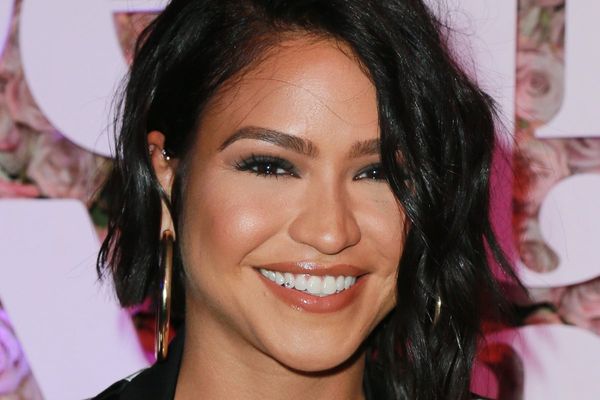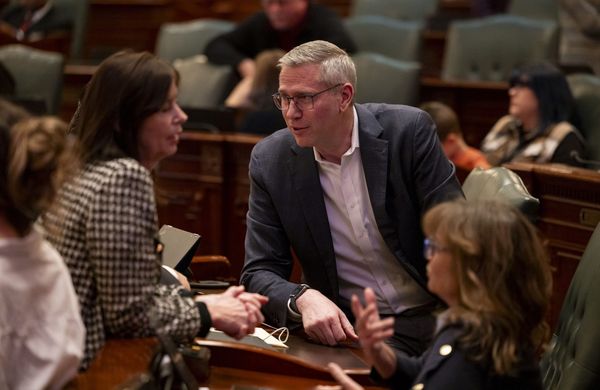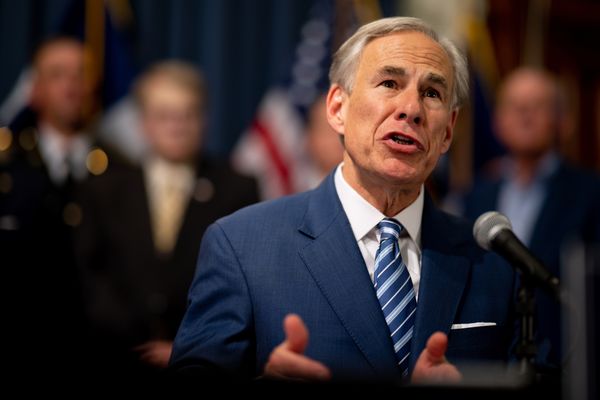
Were the meaning of life to be divined from any artifact produced in the year 2022, that artifact would be a Negroni Sbagliato. Or rather, it would be the sight of the actors Emma D’Arcy and Olivia Cooke, in a now-famous promotional video for HBO’s House of the Dragon, discussing their favorite cocktails. In the dishy tone of someone describing a sex dream, D’Arcy endorses the Negroni Sbagliato, which is like a negroni but, D’Arcy purrs, “with prosecco in it.” Cooke’s eyes widen. “Ooh, stunning,” she blurts, seeming to be actually stunned.
Thanks to social media, tens of millions of people have watched this exchange. Many have reenacted it with their friends or harangued bartenders to mix them a bitter spritz. The video’s appeal is both inexplicable and obvious. In these two people's asymmetric interaction—in their syncopation of syllables and pauses, their counterpoint of postures and facial movements—lies an original story, one that can’t be put into words. Yet something familiar gets conveyed: the magic and hilarity of human connection.
How telling that the clip of D’Arcy and Cooke’s cocktail chat feels as culturally impactful as any scene in House of the Dragon, the $15-million-an-episode Game of Thrones prequel that those actors star in. The show has been, by the numbers, a hit: 9.3 million people watched the Season 1 finale. But its predecessor, Thrones, rewired a generation of TV viewers, inculcating a new taste for fantasy while coining now-common phrases. (Do people even realize they’re quoting Cersei Lannister when they “choose violence”?) By contrast, Dragon’s biggest contribution to pop culture thus far might be the accidental popularization of Campari and bubbles.
That outcome reflects a strange 2022 trend: expensively made and committedly dour fantasy TV. Shortly after Dragon’s August premiere, Amazon launched The Rings of Power, a prequel to J. R. R. Tolkien’s The Lord of the Rings tale, and the costliest television series of all time. Throughout the year, too, Disney deployed multiple Star Wars shows—the slickest and best among them being the spy thriller Andor. Viewers were generally spoiled for explosive, CGI-laden action mixed with slow-burn, episodic storytelling. But the difference between spectacle and spark, self-seriousness and serious entertainment, has never been more glaring.
To be clear, these series varied in many ways, including quality (Andor I gorged; Dragon I tolerated; Power I forced myself to finish). Yet they all shared a strikingly somber mood. The dialogue unfolded in ominous platitudes or urgent whispers. Jokes were weak or nonexistent. Characters tended to fit the archetype of the heavyhearted hero, to the minimization of oddballs, miscreants, or cute sidekicks. Perhaps, you might argue, this is how grown-up entertainment involving lots of make-believe should be: solemn, like a Christopher Nolan movie. But TV has the unique ability to nurture viewers’ long-term investment, usually by building their affection for—and, moreover, fascination with—a show’s characters. Fantasy should only heighten that prerogative.
Just look at the big predecessor for this generation of shows: Game of Thrones. That series’ cinematic ambition, tension-laden plots, and taste for brutality clearly live on. But why, really, did audiences adore Thrones? The top reasons were quip-slinging characters—Tyrion, Cersei, Jaime, Arya, Bronn, Brienne—and the ways they linked. The banter and shady glances these royals and rogues exchanged were not merely comic relief. Rather, they created the stakes that supercharged the show’s fantasy elements. As Thrones progressed, each battle, magic ritual, and disgusting torture scene had the potential to rewire the show’s underlying soap-opera-slash-sitcom.
A defender of the significantly less lovable House of the Dragon might argue that the show had to make compromises in order to meet its unique challenge: telling a story that unfolds over 19 years, with big time skips between episodes. But, as my colleague Shirley Li argued, Dragon still could’ve put a lot more effort into making its most pivotal relationship (between D’Arcy and Cooke’s characters) feel lively. Generally, the series just seemed uninterested in memorable dialogue or likable characters. The figure who was most like an antiheroic Jaime or Tyrion was the bad-boy Prince Daemon, but he communicates solely with cliché vulgarities and grimaces. In a telling scene from the first episode of Dragon, viewers caught the end of a punch line told by King Viserys: “So I said to him, ‘Well, I believe you might be looking up the wrong end.’” A stone-faced adviser then, in a non sequitur, launches into a grim exposition about war. The scene’s subtext: This is a world without delight.
Flashes of joy did exist in The Rings of Power, but they were rendered with the soft-focus simplicity that otherwise made the show a slog to watch. Whether zooming in on the jollily nomadic Harfoot people or the dully noble elves, the show’s attempts to build a web of personalities often amounted to draping a different costume on the same sort of character: someone obsessed with doing the right thing. The major exception was the dwarf lord Durin IV (played by Owain Arthur). Thunderously temperamental but tender, torn between suspicion of and loyalty to his best friend (one of those milquetoast elves), he is the sort of complex character that post-Thrones TV fantasy should provide in bulk.
Andor did end up with a few such characters, which helps explain why it has been praised as one of the best shows of the year. Yet all the deserved acclaim for the Star Wars spin-off’s 12-episode run shouldn’t downplay the fact that the early part of the series had a big problem: saminess. The creator, Tony Gilroy, wasn’t necessarily wrong to spend three episodes establishing the anxious mood on the working-class planet of Ferrix, whose people are chafing under tyranny. But did everyone on Ferrix need to speak solely in those urgent whispers I mentioned earlier? Even the adorable robot, B2EMO, is too stressed out for viewers to connect with.
Eventually, Andor expanded into a satisfying symphony of emotions and characters. And, ironically for a show about rebellion, that happened in large part because of the bad guys. In the show’s fourth episode, Gilroy brought viewers inside a high-level meeting of Imperial security officers, at which Major Partagaz (played by Anton Lesser) dispenses chastisements with passive-aggressive gentility. The flurry of grimaces, wiggling eyebrows, and coded insults that fly around the conference room is like a subtle fireworks show. From that moment, the bitter brew of Andor feels lighter and tastier, as if splashed with prosecco.
Why was this kind of fizziness so rare in the past year of fantasy TV? Perhaps it is simply because the human element is hard to pull off—harder, in some ways, than employing a team of effects artists to animate a dragon, or enlisting a composer to write a stern, string-laden score. Our present era of franchise-driven TV requires the industrialization of spectacle, but all the money in the galaxy can’t ensure crackling dialogue and convincing acting. The funny thing is that without a bit of goofiness, these supposedly mature fantasies undermine the credibility they’re chasing. A world where everyone’s frowning just feels fake.







